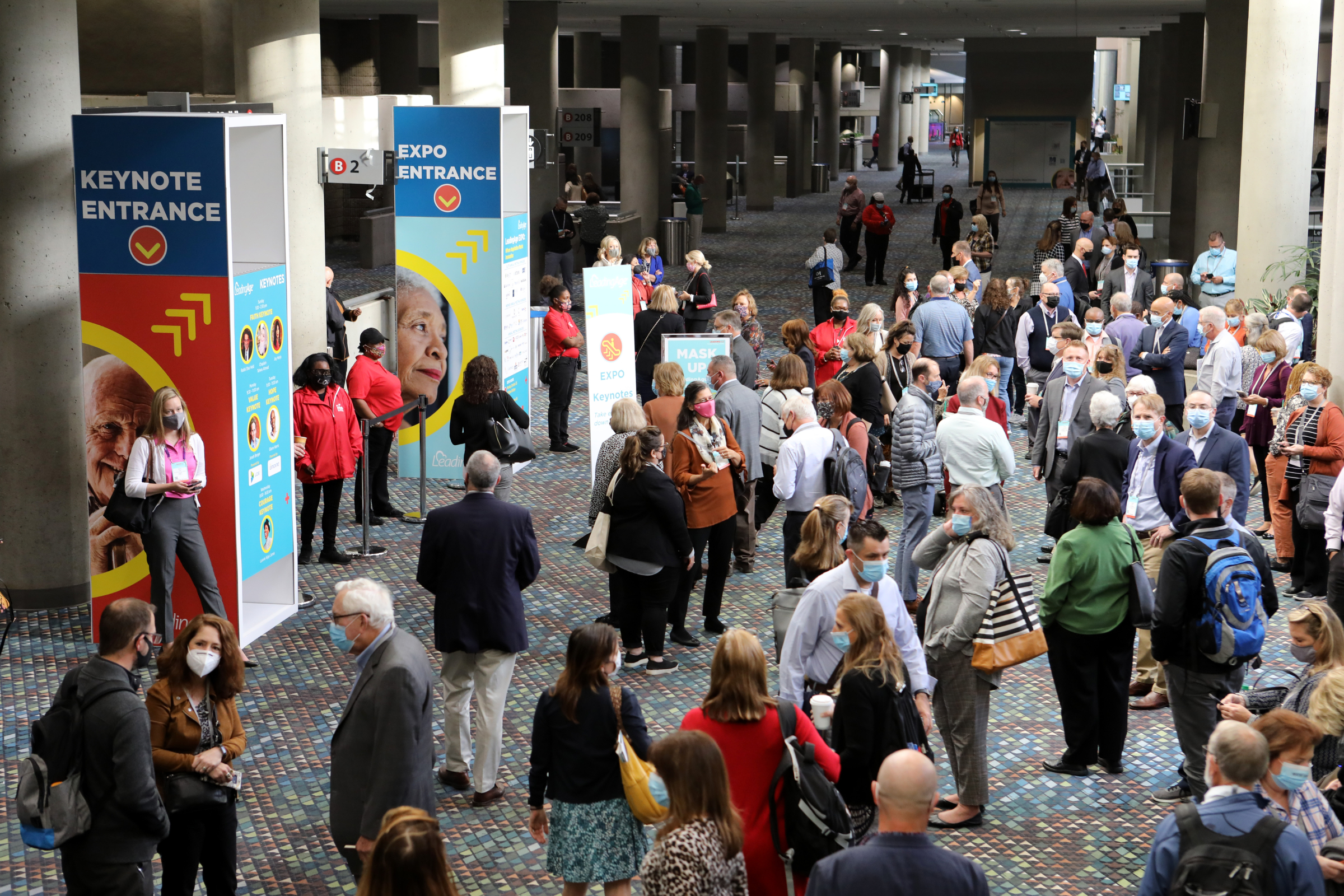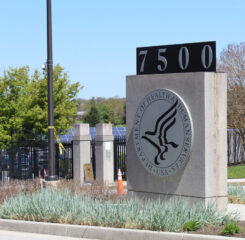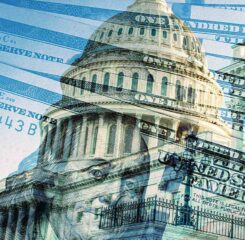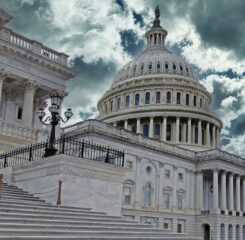HUD Seeks New $50B Housing Supply Fund, Other Funding for FY23
On March 28, HUD transmitted its request for fiscal year 2023 funding to Congress. The request includes a new, “off-budget” $50 billion “Housing Supply Fund” for states as well as resources for HUD-assisted multifamily programs. The request would fully fund the renewal of existing operating subsidy contracts, would provide $100 million for new Section 202 Supportive Housing for the Elderly homes, expand the number of vouchers, and increase funding for Homeless Assistance Grants and the HOME program compared to FY22-enacted levels.
New “Housing Supply Fund”
The headline in HUD’s FY23 request is the new Housing Supply Fund the agency is seeking from Congress. Of the $50 billion in mandatory funding for the new Housing Supply Fund, $35 billion (over 10 years) would go to HUD for grants to state and local housing finance agencies, $10 billion would be for an additional allocation to the Low Income Housing Tax Credit program, and $5 billion would go Community Development Financial Institutions to expand the supply of multifamily and single family housing.
The vast majority of HUD funding is “discretionary” funding; that is, Congress annually decides funding levels for HUD program. Moving funding for a new Housing Supply Fund to the mandatory side of the federal budget protects it, generally, from budget caps and from annual fluctuations of funding levels by Congress. The request from HUD for such large amount of “off-budget” funding is extraordinary.
The Housing Supply Fund’s HUD piece would have two components. First, $25 billion for grants for affordable housing production. The production funds would be “flexible” and would be distributed by an undefined formula to state and local housing finance agencies and their partners, territories, and Tribes, to produce streamlined financing tools for multifamily and single-family housing units of modest density (up to 100 units per site).
HUD’s budget request says these resources will be used to support housing for renters and homebuyers with low to moderate incomes, including families with up to 150% of area median income in high-cost areas as determined by HUD. No further details on the income targeting of these funds, the affordability of the units, any set-aside for housing communities serving older adults with service coordination, etc., is provided in HUD’s budget request documents.
HUD’s second component is $10 billion for grants to reduce affordable housing barriers. These grants will support states and local jurisdictions that have adopted housing-forward policies and practices to remove barriers to the development of affordable housing. The grants will provide additional funding to incentivize and increase the production of affordable units and housing-related infrastructure to support increased housing development, such as environmental planning and mitigation, road infrastructure, and water/sewer infrastructure. This program will also be used to provide resources for jurisdictions to take active steps towards becoming a housing-forward community, such as meeting housing production goals. To address housing supply needs on Tribal lands, a portion of the funds will be set aside for HUD to design programs that can be directly accessed by Tribal governments and Tribal Designated Housing Entities. The proposal will allow a portion of the funds to be used for additional HUD staff, new and upgraded information technology systems, research, and technical assistance to effectively administer and advance implementation of this program.
Project-Based Rental Assistance
The request would fully fund the renewal of Section 8 Project-Based Rental Assistance (PBRA) contracts. Approximately 45% of the nation’s 1.2 million PBRA-assisted households in about 17,240 PBRA housing communities are headed by older adults, including about two-thirds of the vast majority of Section 202 communities that pre-date the Project Rental Assistance Contract form of operating subsidy (202/PRACs), which was authorized in 1990.
The request also includes $275 million in new funding for rent adjustments for at-risk post-Mark to Market (M2M) Section 8 properties and other PBRA properties with health and safety deficiencies to prevent distress and facilitate rehabilitation, consistent with program requirements that the property rents remain at or below comparable market rents. M2M contract rents are initially set at market levels and may currently only be adjusted by OCAF. According to HUD, of the approximately 1,800 post-M2M Section 8 properties, approximately 830 have rents currently below Fair Market Rents for their locality. The budget request proposal would allow a budget-based rent increase (BBRI) adjustment for those properties at risk of becoming distressed. The request also includes at least $25 million for BBRI adjustments for other PBRA properties that have health and safety deficiencies, to set rents at or below market rent, based on a current rent comparability assessment.
The request also seeks $31 million to support budget based rent to cover the cost of a Service Coordinator to help elderly residents stay healthy and age in place. Elderly service coordination is recognized as a cost-effective means to support seniors aging-in-place and prevent premature institutionalization in nursing homes. According to the request, these rent increases would be limited to circumstances where budget-based rent adjustments are allowed by statutory program authorizations but have been constrained in recent years by HUD policies designed to slow program cost growth. HUD would modify its rent adjustment procedures to reflect availability of the requested funds.
Section 202 Supportive Housing for the Elderly
HUD is requesting full renewal funding, $742 million, for Section 202 Project Rental Assistance Contracts, with an assumption of needed subsidy inflation for FY23 to be 4.4%.
For new Section 202 homes, HUD is requesting $100 million to expand the Section 202 supply by about 1,100 new homes. The request also seeks authorization for the use of Section 8 Project-Based Rental Assistance contracts instead of PRACs for new Section 202 awards. This proposal would allow HUD to enter into Section 8 PBRA Housing Assistance Payments (HAP) contracts in lieu of PRACs. LeadingAge is seeking $600 million for new Section 202 homes in FY23.
As it did for FY22, HUD is seeking authority to change contract rents for Section 202 and Section 811 Project Rental Assistance Contracts via the use of an operating cost adjustment factor (OCAF) for annual contract adjustments, with budget-based rent increases every 5 years. Today, contract rents for PRACs are set through annual budget-based rent increases.
For grant-funded Service Coordinators, HUD seeks $120 million, an amount HUD estimates will be enough some new Service Coordinators after the existing grants are renewed.
Rental Assistance Demonstration
The request seeks $10 million for RAD conversion subsidy for the Section 202 Project Rental Assistance Contracts (PRACs) converting to PBRA. HUD says this $10 million in RAD conversion subsidy will support the cost-effective conversion of 3,000 Section 202 PRAC properties that could not otherwise participate in a RAD conversion to support a more sustainable long-term operation. These funds would also be available to utilize Participating Administrative Entities (PAEs) to provide direct support to small owners and properties for the administrative costs of the RAD conversions under both components of RAD.
The budget request describes how owners of small properties, including those assisted under Section 202 PRAC and Section 8 Mod Rehab, sometimes struggle with the cost and complexity of certain underwriting requirements that HUD has established to ensure that the property will be physically sound and free of environmental hazards. The proposal would authorize the use of Participating Administrative Entities (PAEs), originally used in the Mark-to-Market program, to conduct the property level due diligence, including Capital Needs Assessments and environmental reports, that are required of all RAD conversions. The PAEs would provide significant relief for owners of small properties, where the cost of such due diligence is often prohibitive to taking the necessary steps to improve the property for residents. These small properties are often in underserved communities, and this authority will assist in long-term preservation and affordable housing opportunities.
Mental Health
HUD proposes to coordinate validated, evidence-based training for front-line housing professionals on the signs and symptoms of emotional distress and mental health challenges. This training will help housing professionals connect customers who are experiencing emotional distress with appropriate local resources.
Green & Resilient Retrofit Program
HUD’s request includes $250 million for a green and resilient retrofit program for multifamily housing, including Section 8 PBRA and Section 202s. The funds are for a demonstration program to improve the energy or water efficiency or climate resilience of multifamily properties. The Green and Resilient Retrofit Program would provide funding to owners of Multifamily-assisted properties to rehabilitate these properties to be more energy and water efficient, healthier, and more resilient to extreme weather events. Of these funds, HUD is seeking $55.5 million for furthering utility benchmarking at public and multifamily assisted housing properties.
HUD Staffing
Overall, the request seeks funding for about 800 new HUD staff, including 287 new staff in HUD’s Office of Housing, which includes the Federal Housing Administration, oversight and operation of PBRA, Section 811, Section 202, housing counseling, manufactured housing, and HUD’s Rental Assistance Demonstration program. “The 2023 Budget provides the funding required to hire and retain critical staff who will be engaged in strengthening and broadening the Federal housing safety net for people in need, advancing housing equity to improve housing choices and greater economic opportunity, and increasing the production of, and access to, affordable housing,” the budget says.
See HUD’s budget request documents here.
See LeadingAge’s FY23 HUD priorities here.

Most Recommended
July 11, 2025
 Budget Reconciliation 2025
Budget Reconciliation 2025
July 08, 2025
Pathways for Foreign-Born Workers
Recently Added
July 15, 2025



